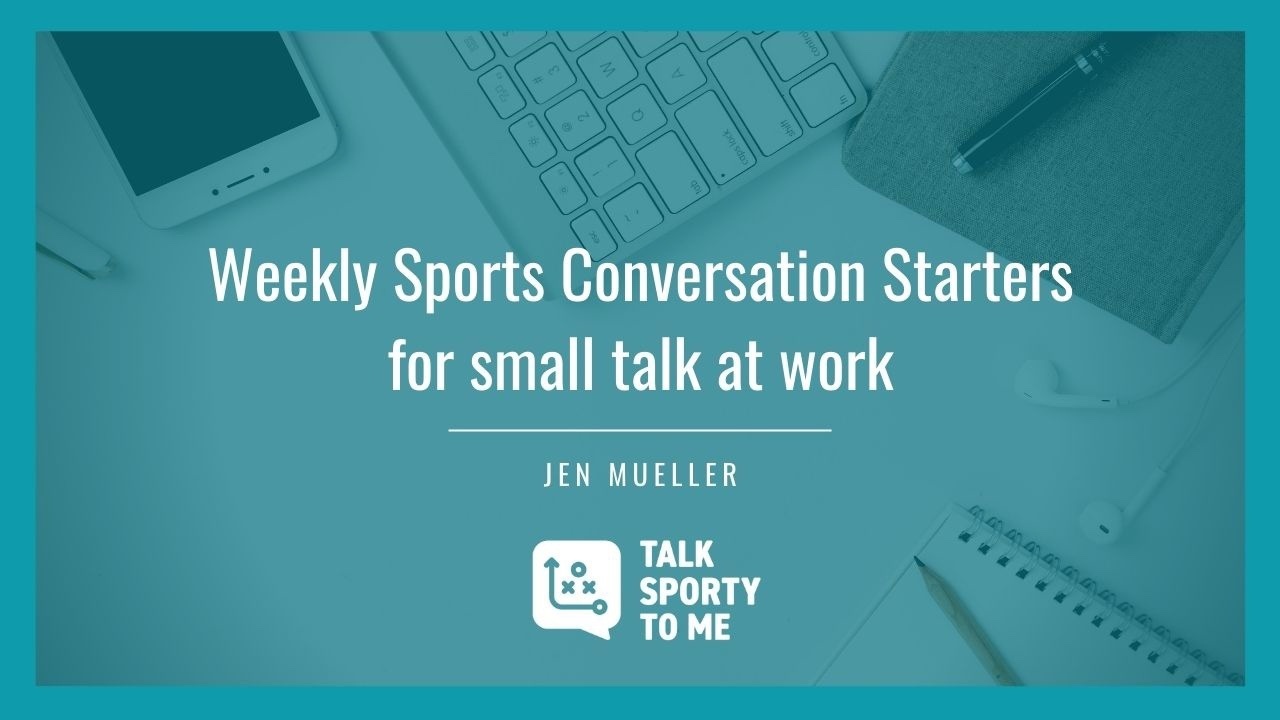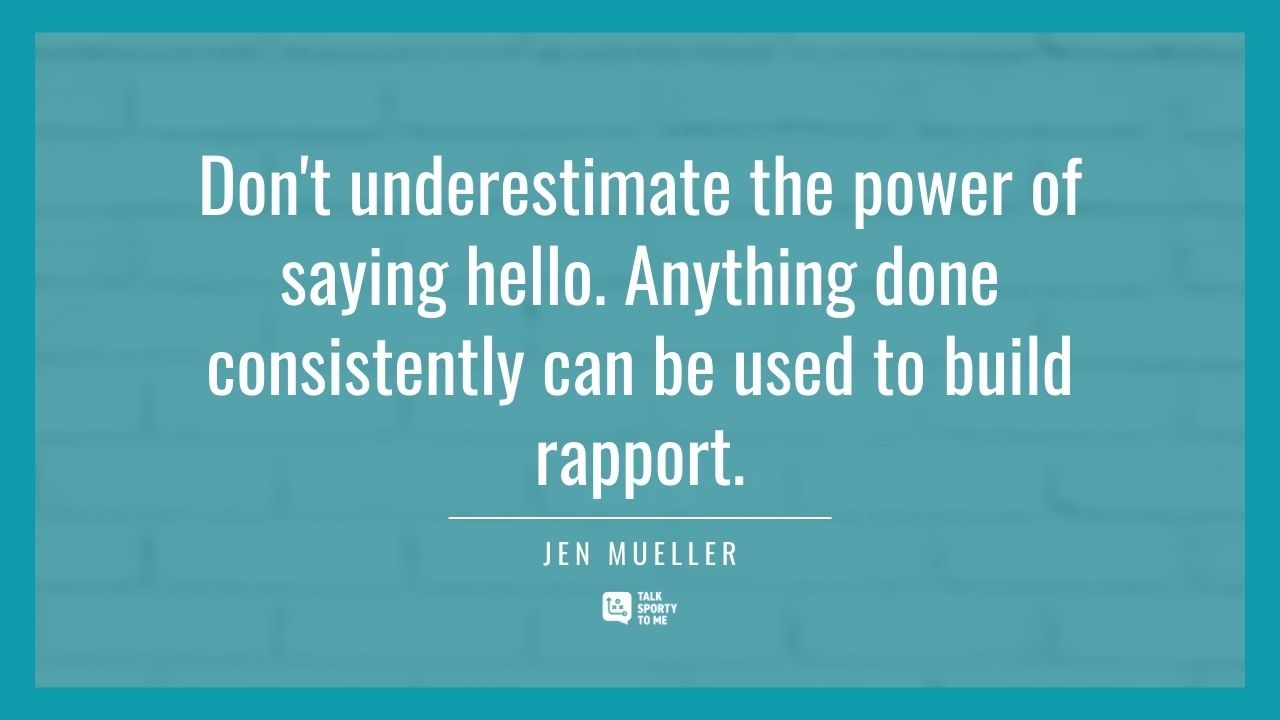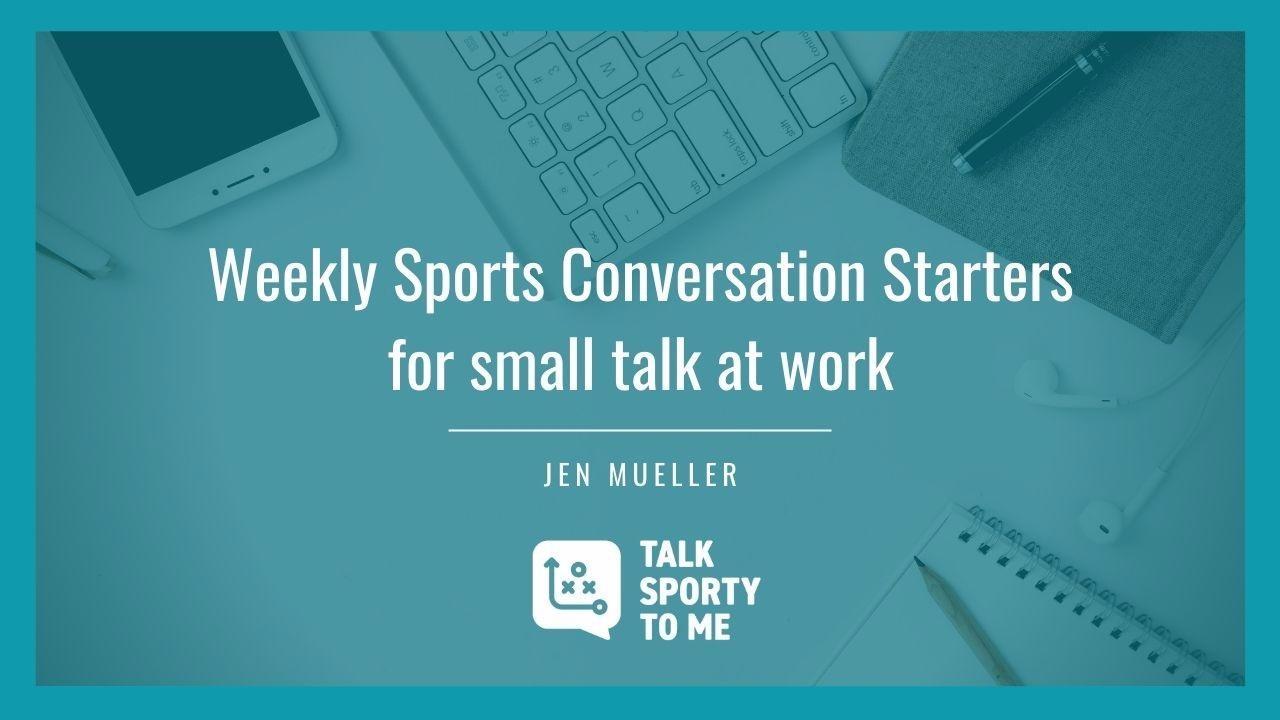“Would you just make a decision already?”
I’ve said those words out loud plenty of times, but this time I was posing the question to myself, while st...
You’ve set goals.
You’re targeting professional milestones.
You’ve crafted a plan for success.
Does it include ways to be more visible at work with...
Surely you've seen the highlight by now. The final play of the NFL game between the Raiders and the Patriots. The one where New England was heading to...
A quick search about small talk and effective small talk reveals lists of questions, articles on the “necessary evil” of it and hacks to make it easie...
If there’s one universal takeaway from the Olympics over the last week – it’s that sports isn’t just about the outcomes. Sports can be used to tackle ...
I don’t think about myself as working in a male dominated environment. Which sounds odd coming from someone who’s spent 20 years inside sports locker ...
Last week as I stood in the Mariners clubhouse introducing myself to new players and asking for interviews, I recognized a familiar trend and pattern....
The world needs a lot of things right now.
The most important of which might be communication skills. Not the ability to talk, but the ability to tr...
The person who coined the phrase, “there’s no such thing as a stupid question” was either flat-out lying or unaware of all the stupid questions he/she...
Happy Holiday week!
I’ll keep this short and sweet since you’ve got a lot on your plate. Don’t forget that sports topics make good small talk options...
I love my family, but sometimes I just don’t want to talk to them.
I’d apologize for sounding like a horrible person - but I know you’ve been there t...














